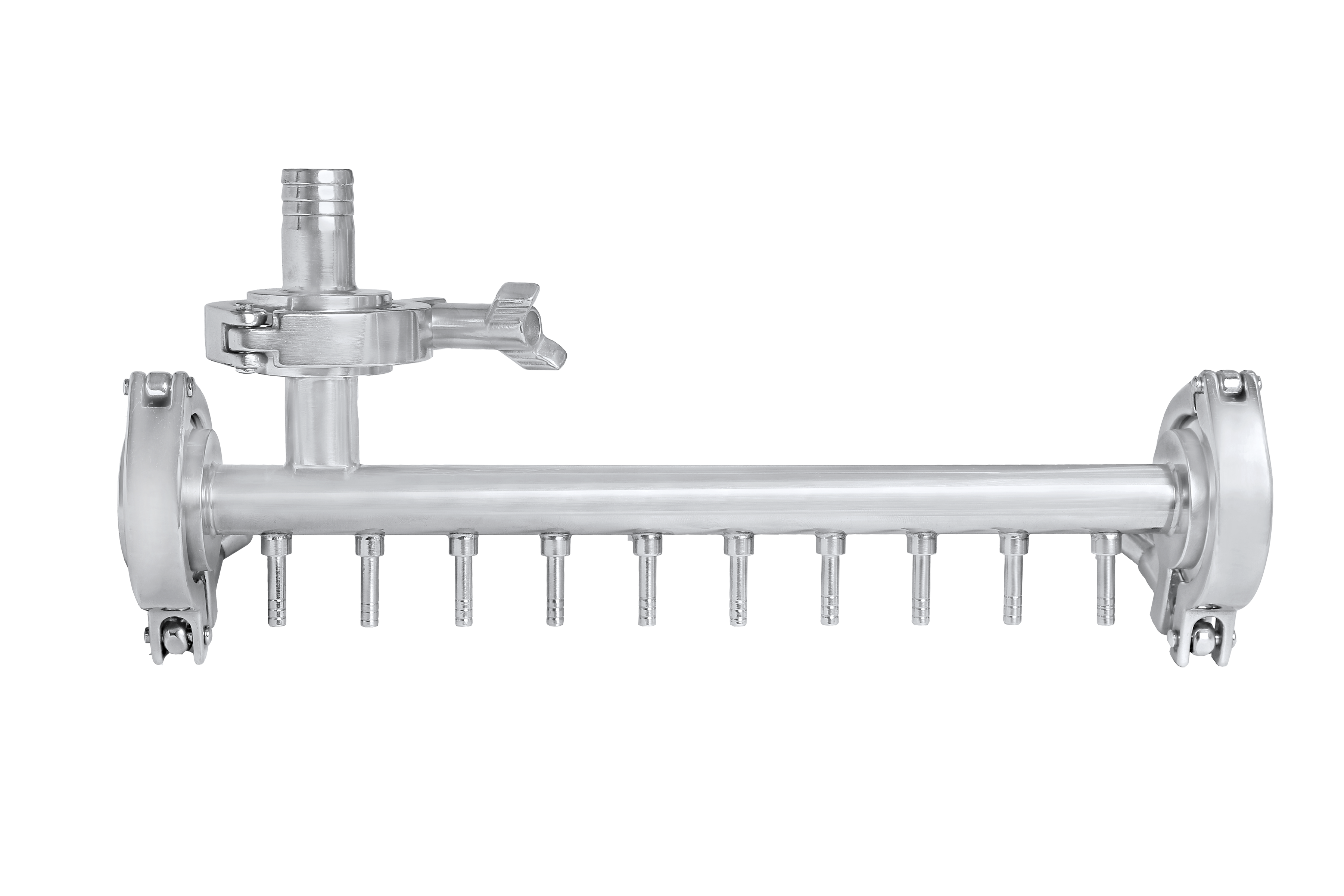
Seamless stainless steel manifold
Title: The
Advantages of Stainless Steel Manifolds: A Reliable Solution for Fluid
Distribution
Introduction:
In
industrial settings where fluid distribution plays a crucial role, having a
reliable and efficient manifold system is essential. One material that standsout for its durability, versatility, and corrosion resistance is stainless
steel. In this blog post, we will explore the numerous advantages of stainless
steel manifolds and why they are the preferred choice for various applications.
1.
Corrosion Resistance:
Stainless
steel manifolds are highly resistant to corrosion, making them ideal for
handling different types of fluids, including water, chemicals, and gases. This
corrosion resistance ensures a longer lifespan and minimizes the risk of leaks,
protecting both the manifold itself and the surrounding equipment.
2.
Durability and Longevity:
Stainless steel
is renowned for its exceptional strength and durability. Stainless steel
manifolds can withstand high pressures and temperatures, making them suitable
for demanding industrial environments. Their robust construction ensures a
longer lifespan, reducing the need for frequent replacements and maintenance.
3.
Versatility:
Stainless
steel manifolds offer versatility in terms of application. They can be
customized to meet specific requirements, allowing for precise fluid
distribution in various industries such as oil and gas, chemical processing,
HVAC systems, and water treatment. Their adaptability makes them suitable for a
wide range of fluid types and flow rates.
4.
Precision Engineering:
Stainless
steel manifolds are precision-engineered to ensure optimal flow control and
distribution. The smooth internal surfaces of stainless steel minimize
turbulence, pressure drops, and flow restrictions, resulting in improved system
performance and energy efficiency. This precision engineering also allows for
accurate measurement and control of fluid flow.
5. Easy
Maintenance:
Maintaining
stainless steel manifolds is relatively straightforward. Their
corrosion-resistant properties make them easy to clean and disinfect, ensuring
hygienic fluid distribution in applications such as food and beverage
processing or medical equipment. Additionally, stainless steel's non-porous
surface reduces the risk of bacterial growth, enhancing overall system
cleanliness.
6.
Customization Options:
Stainless
steel manifolds can be tailored to specific project requirements. Manufacturers
offer customization options such as size, shape, port configurations, and
mounting methods. This flexibility allows for seamless integration into
existing systems and simplifies installation.
7. Cost-Effectiveness:
Although
stainless steel manifolds may have a higher upfront cost compared to other
materials, their long-term cost-effectiveness outweighs the initial investment.
Their durability and resistance to corrosion minimize maintenance and
replacement expenses, ultimately reducing downtime and increasing operational
efficiency.
Conclusion:
Stainlesssteel manifolds offer a reliable, durable, and versatile solution for fluiddistribution in various industrial applications. Their corrosion resistance, longevity,
precision engineering, and customization options make them the preferred choice
for industries that require efficient and accurate fluid control. Investing in
stainless steel manifolds ensures optimal system performance, reduced
maintenance costs, and increased operational efficiency in the long run.
Filter Using Blog Tags


